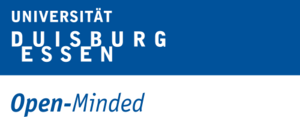Local Partners
Ruhr-Universität Bochum
With over 38,000 students and more than 6,000 employees, the Ruhr-University Bochum (RUB) is one of the largest universities in the Ruhr-Area of Germany. It hosts over 6,000 international students and more than 800 foreign doctoral and international guest researchers. RUB, the Technical University of Dortmund and the University of Duisburg-Essen have since 2007 joined forces in the UA Ruhr, the University Alliance of the Ruhr area.
Technische Universität Dortmund
With 17 faculties ranging from science and engineering to social sciences and cultural studies, the TU Dortmund University currently has 29,700 students and 6,598 employees, including 325 professors. The university also enrolls about 3,000 international students.
Universität Duisburg-Essen
The University Duisburg-Essen enrolls more than 41,000 students from more than 130 countries in a total of over 267 degree programs. They host over 7400 international students.

Max Planck Institute for Chemical Energy Conversion
At the Max Planck Institute for Chemical Energy Conversion, researchers develop a thorough understanding of the active sites of catalysts crucial for energy and chemical bond transformations. The research encompasses mechanistic studies, rational design, precise preparation, and synthetic applications of catalysts and catalytic systems for “de-fossilized” energy systems.About 400 people are employed at the institute.

Max Planck Institute for Sustainable Materials
At the Max Planck Institute for Sustainable Materials in Düsseldorf, approximately 350 scientists investigate eco-friendly, resource-efficient methods for manufacturing, utilizing, and recycling vital materials using hydrogen instead of fossil fuels, extending material lifespans, enhancing recyclability, and minimising waste.
MAX-PLANCK-INSTITUT FÜR KOHLENFORSCHUNG
At the Max-Planck-Institut für Kohlenforschung in Mülheim a. d. Ruhr work about 370 students and employees. Scientists explore the catalytic transformation of compounds and materials with the highest degree of chemo-, regio- and stereoselectivity under conditions which maximize efficient use of natural resources.



